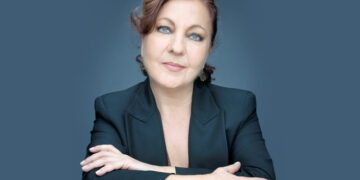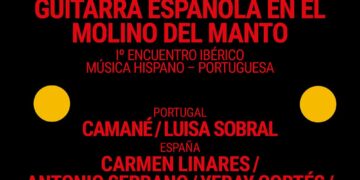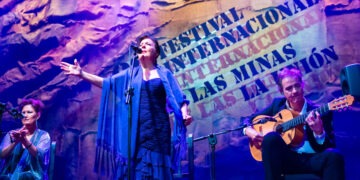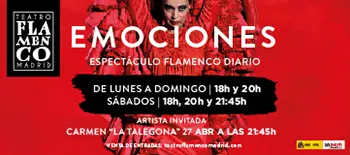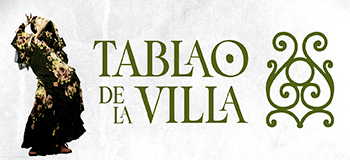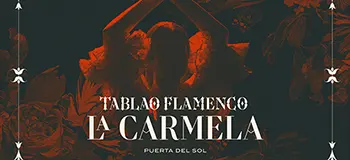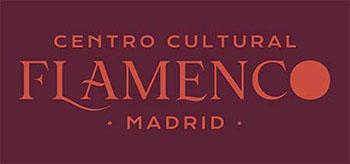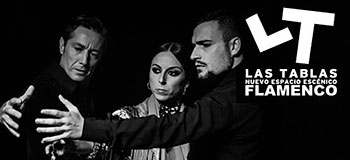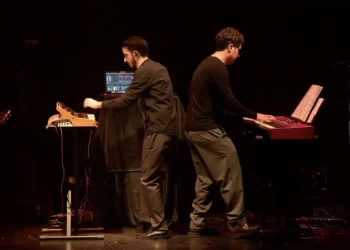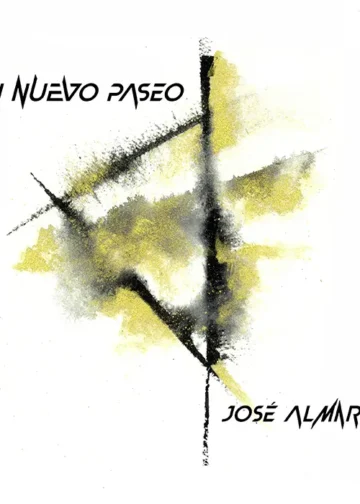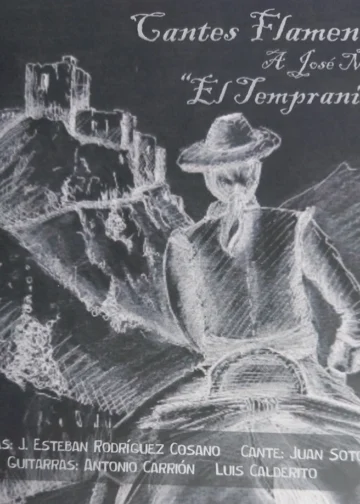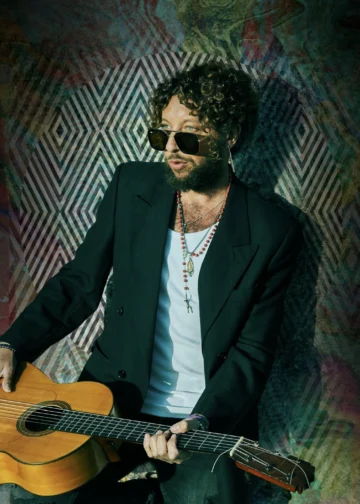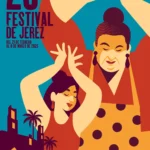Text: Pablo San Nicasio Ramos
Photos: Rafael Manjavacas
«The most important thing: to be consistent»
|
She’s like our mother, a tutor for flamencos. And without losing her simple placid composure. There’s no trace of laying down the law with each sentence, and she could. Carmen Linares has no greater pretensions than having a pleasant time. Like when she’s on stage. The grande dame of cante has just brought out a new recording, “Remembranzas”, her first live recording, on her own record label, also a first for her. Of the emotions of that February night, and lifetime achievement recently praised, we will speak with this woman who seems even more natural face to face. How come we had to wait so long for a live recording? I think a few years ago, more than fifteen, I made a live recording in Cologne under the auspices of German radio, and then it was released as part of a collection of world music, I believe that was on the Network label. It came out okay, even though we did it at eleven in the morning, what a time to record… There were some interesting things, the Cortés brothers were on guitar, maybe my husband Miguel knows what became of that record.
On this occasion, my oldest son took care of recording with the best possible sound, it was a very special concert. And luckily, it came out well, because to get a good live recording, it often takes six or seven performances. Then there was the death of Enrique Morente, and just ten days earlier my mother passed away…it took a lot of will-power. I received a lot of support from people around me, Javier Barón, the guitarists, José Luis Ortiz Nuevo…it was pure flamenco, right on the edge. Did you have to make use of any particular resources, given the circumstances? I didn’t want the whole thing to turn into a nightmare. I was prepared to sing, but I knew if anyone were to remind me of something, or if I began to cry, I’d have to leave the stage. So it was a really tough job. I began little by little, listening to José Ortiz Nuevo lifted my spirits, seeing everyone there on my side…you’re always a professional, and then with people’s support, we overcame all the obstacles. The family unit is vital for you. Your closeness to flamenco fans is also enhanced by that, the accessibility of your natural condition. Of course. It could never be any other way. I’m with my children, three wonderful kids who never gave me any problem, and bring only satisfaction, and I never encouraged them to become artists. The eldest, Miguel, studied communications, he’d do anything for me. Eduardo is the guitarist, now he’s at the conservatory and playing better every day; and Lucía who studied dramatic arts is wonderful, just yesterday we were shopping together and I was helping her with a project. And of course my husband, with all he knows about flamenco and loves the art. But even back to my father, who was so proud his daughter was interested in flamenco, and in those days the typical thing was the family wouldn’t let the daughters sing, because it was a world of prostitutes, all the bad press. He was very open-minded. “I didn’t want the whole thing to turn into a nightmare. I was prepared to sing, but I knew if anyone were to remind me of something, or if I began to cry, I’d have to leave the stage. So it was a really tough job”
He’d be delighted because of all the things that have happened. He’d be all puffed up with pride. Because he was a person who was happy about every new singer that came out, he loved Morente. Since he loved a good time more than anything else, he wouldn’t have deprived himself of today’s flamenco, he liked traditional things, but turned his back on nothing. The work of your son Miguel is starting to be noticed. Yes, the fact is the new record label, and his work on the festival “Flamencos por Gambo”, which began as a project with very limited resources, has turned into a consolidated event, and he’s got a presence. I’m sort of the godmother of the association he and his friends set up. One day he asked me to please sing free for this cause, and it’s gone a long way in a short time. With everyone’s support, some really nice things have been done. The Comisiones political party let them use the auditorium, which is a huge amount of money, one of the members of the Asociación “El Alto” is a pharmacist and helped out with the creation of a pharmacy in Gambo…and all my artist friends rally round and support the cause…. What about the record label you just inaugurated? Yes, that was also Miguel’s idea. I was going to record with Universal, but in the end the contract fell through, I wasn’t interested. Hey, who knows if in the future we might sign with them again, I don’t say it’s impossible, but my son was there on the ready, with his firm Cabofaro, and we made the record with Salobre. And is it a big difference? Well, you have to take on a lot of expenses you didn’t have before, and there’s more work to it, but look, if we just break even I’ll be happy. Because a recording gives me contracts and prestige. Listen, I also have more say in the workings, because with other records, the photo on the cover and other things I didn’t like, and there was nothing I could do about it…so in that sense, my opinion counts more. And that lack of concern is only with flamencos? I have the idea that eighty percent of performing artists are in the same boat. Except for those who sell millions and millions of records, the rest…they count for very little in this type of question. For example, I would like to get hold of the master of my Lorca record, which is out of print. Because now I sing everything differently and it would need to be refreshed. “I also have more say in the workings, because with other records, the photo on the cover and other things I didn’t like, and there was nothing I could do about it…so in that sense, my opinion counts more”.
What was it like singing siguiriyas to your mother? And you remembered the poets. Your taste for the poets makes one think about today’s flamenco verses… In any case, I’ve sung verses of Caballero Bonald, Fernando Quiñones, Manolo Ríos Ruis…speaking of contemporary ones who are particularly valid. Morente did something similar, the record is also the evocation of a friend. We met at the Charlot club…many years of shared experiences and learning in a very natural way. He learned from Rafael Romero at Zambra…he had some fantastic teachers…today’s young people have a much harder time, they have to put out a record and make it big from the first moment in order to cover those costs. There aren’t many places left like that Charlot club. No. But it wasn’t a club as such, it was a flamenco hangout where we talked about cante, a gathering of flamenco followers. I lived very close, in the Plaza Santa Ana. I used to go with my father, and he’d sit me in the corner to listen. You were likely to find Manolo el Sevillano, who was Pepe de la Matrona’s guitarist. It was a very respectable place, no drunks or other undesirables were allowed. There was great solemnity, everyone listened, there was cante and flamenco lessons from people like Matrona which was a privilege for those of us who were there. And then we all paid equal parts, I remember when they would say “eight pesetas apiece”…then we’d all go to the Casa de Córdoba, or of Granada…the regional centers also had a lot of activity. “I lived very close, in the Plaza Santa Ana. I used to go with my father, and he’d sit me in the corner to listen. You were likely to find Manolo el Sevillano, who was Pepe de la Matrona’s guitarist. It was a very respectable place, no drunks or other undesirables were allowed”. Do you think things have degenerated? Do young people today know flamenco? You see everything, but Arcángel, José and Encarna Anillo, Marina Heredia, Segundo Falcón…people like that know cante, and a lot I haven’t mentioned, I don’t like to name names, but there are people. There are also those who do pop songs or pseudo-flamenco, which is something else. Time puts all things in their place, and you come to distinguish between a passing fad or something like Omega, which will always be around despite fads. Morente and you are singers with legions of guitarists at hand. Isn’t it difficult to change the chip from one to the other? Not at all. I’m a great fan of guitar, and each one brings something. If you always sing with the same guitarist, you’re always going to sing the same. Changing guitarists means you also change. Maybe I say “I’m going to see what Niño Josele is doing”, and I call him, or someone else…you have to open up because their level forces you to improve as an artist. You were given a prize for lifetime achievement. What’s the key to staying in the ring after so many years? I’m very pleased, the fact that my peers gave me the prize, for me it’s a great honor. And in answer to your question: being consistent. If I’m not happy with what I’m dong, how is anyone else going to like it? You also have to be faithful to yourself and be an artist of your own time. Know as much as possible about the art, its evolution, not be anchored to the past, always seek out quality and try to remember that the roots are the basis of everything. And in general, learn from your errors, there’s nothing wrong with messing up once in a while, that’s all. At 20 I knew I wanted to sing soleá, and they were telling me yes, but I was young and cute and I ought to sing pop music, that I could make a mint…but if I don’t like something I don’t do it. Not for a moment did I consider leaving flamenco to make the big time, I just wanted to learn cante jondo. But hey, if there’d been economic necessity, or a different set of circumstances, I don’t know, but if I didn’t do it then, I’m not going to do it now. “Not for a moment did I consider leaving flamenco to make the big time, I just wanted to learn cante jondo. But hey, if there’d been economic necessity, or a different set of circumstances, I don’t know, but if I didn’t do it then, I’m not going to do it now”. During the awards there was much mention of flamenco, Melchor, Carmen Linares, Morente…it was like they realized how long they’d been ignoring flamenco, don’t you think? Well it’s about time, because the current generation is short on flamenco information, even in the media. My husband, who made so many flamenco programs, says this. They couldn’t even make a program for Rocío Molina, or Yerbabuena or Belén Maya. In cante, they stopped with young Morente and Naranjito de Triana. This generation has no flamenco programs on national television, when there always used to be. Does the present seem like flamenco heaven compared to your beginnings? I didn’t think or imagine anything when I started out. I just wanted to sing because I was having a great time, meeting people, travelling…then becoming a star…when you see your career coming together it all pays off, you can create projects… When I found my place I’d already arrived, there was a path that had been travelled and I hadn’t even realized it. So in what direction are you going for the next forty years? I don’t really know, lots of things I read give me ideas. I might say “look what a nice verse by Gloria Fuentes”, or so-and-so’s music…I don’t search, I find. Look at José Luis Montón, he did something really nice for children…I listen to it and think how nice it is, and I might be able to do something like that…I honestly don’t know. |



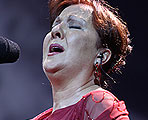
 It’s not that I don’t like live recording, in fact I’ve done it alot, the thing is it doesn’t usually yield good quality. I should have made sure to record in the best possible conditions.
It’s not that I don’t like live recording, in fact I’ve done it alot, the thing is it doesn’t usually yield good quality. I should have made sure to record in the best possible conditions. What would he say to you today?
What would he say to you today? We need to talk about that, the recording, the extense and varied content.
We need to talk about that, the recording, the extense and varied content.
